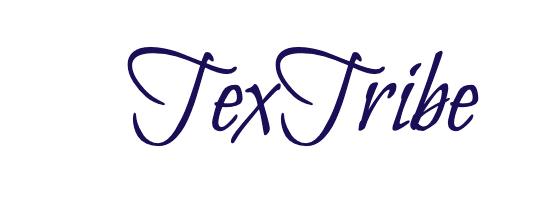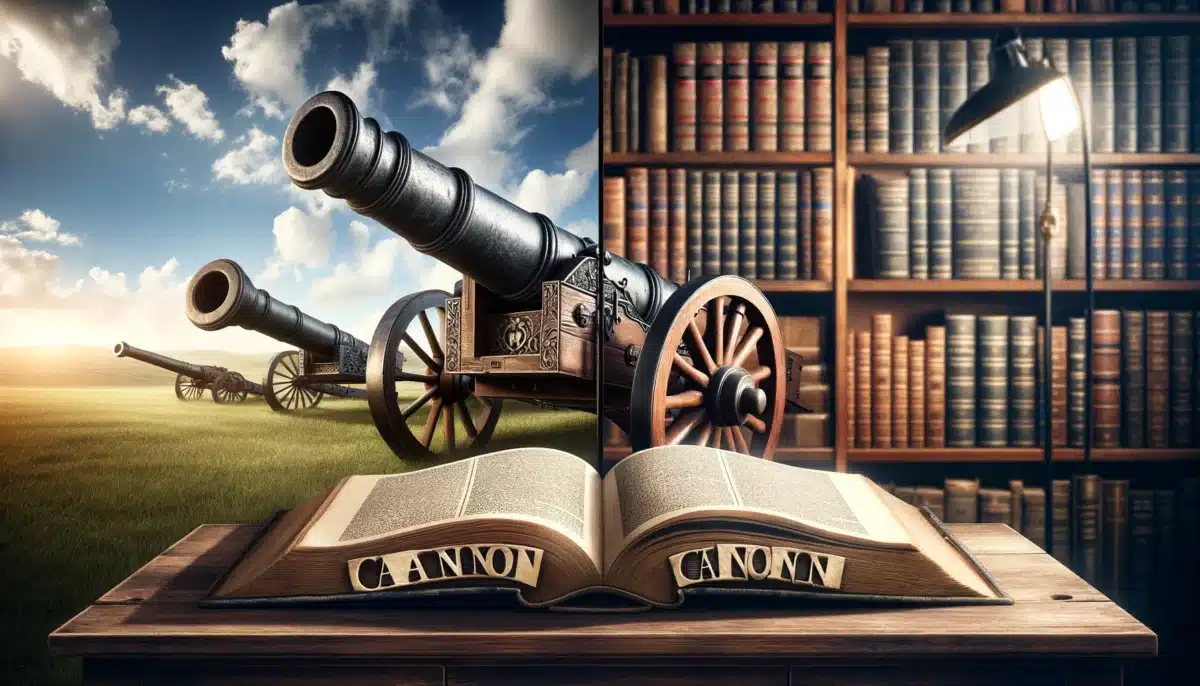In the English language, “cannon” and “canon” are two terms that, despite their phonetic similarity, carry distinct meanings and usages. Understanding the differences between these terms not only enriches one’s vocabulary but also avoids confusion in both written and spoken English. This article aims to dissect the specifics of “cannon” and “canon,” presenting their definitions, origins, pronunciation, and the contexts in which they are used. By comparing these terms, we highlight their unique aspects and provide examples to illustrate their application in sentences.
Quick Facts Table
| Aspect | Cannon | Canon |
|---|---|---|
| Part of Speech | Noun | Noun |
| Definition | A large, heavy piece of artillery, typically mounted on wheels, used in warfare to shoot projectiles. | A general law, rule, principle, or criterion by which something is judged; a collection or list of sacred books accepted as genuine. |
| Origin | Middle English, from Old French “canon,” from Italian “cannone,” meaning large tube. | Latin “canon,” meaning ‘rule,’ from Greek “kanōn,” meaning measuring rod, rule. |
| Usage | Military, historical contexts. | Religious, literary, and academic contexts. |
Difference Between “Cannon” and “Canon”
Definition of Cannon
A cannon is a large, heavy piece of artillery traditionally used in warfare. It is designed to launch projectiles far beyond the range of personal weapons, playing a crucial role in both siege and field operations throughout history.
Definition of Canon
Canon, on the other hand, refers to a collection of rules or standards, as well as a list of literary or artistic works that are considered to be authoritative or essential. In religious contexts, it denotes the body of sacred scriptures or texts recognized as genuine.
Origin of Cannon
The term cannon originated in the Middle Ages, deriving from the Old French “canon,” which itself comes from the Italian “cannone,” meaning a large tube. This reflects the cannon’s function as a large gun.
Origin of Canon
Canon comes from the Latin “canon,” meaning ‘rule,’ which was borrowed from the Greek “kanōn,” signifying a measuring rod or a rule. This origin underscores the term’s association with standards and norms.
Pronunciation
- Cannon: /ˈkæn.ən/
- Canon: /ˈkæn.ən/
Although they sound similar, the context in which they are used can help distinguish them.
Comparing Cannon and Canon
When comparing cannon and canon, the distinction lies primarily in their realms of application and conceptual meaning. Cannons are physical, tangible objects associated with military history and warfare. In contrast, canon is an abstract concept that applies to rules, standards, and collections of significant works in various fields, including religion, literature, and art.
Comparison Table
| Feature | Cannon | Canon |
|---|---|---|
| Nature | Tangible object | Conceptual rule |
| Usage Context | Warfare, history | Religion, literature, arts |
| Representation | Physical artillery | Intellectual or spiritual standard |
Usage in Sentences with Explanations
Use of Cannon in Sentences
- The old fortress still houses a cannon from the 18th century, a remnant of its military past.
- During the reenactment, they fired the cannon, echoing the battles fought long ago.
- The museum’s exhibit on medieval warfare includes a perfectly preserved cannon.
- Historians often study the evolution of cannon design to understand military technology’s impact on warfare.
- The cannon ball, found during the excavation, suggests there was a battlefield nearby.
Use of Canon in Sentences
- Shakespeare’s plays are considered part of the English literary canon.
- The canon of biblical texts has been the subject of scholarly debate for centuries.
- Her work was finally recognized as part of the canon of classic American literature.
- The canon of philosophical works includes Plato and Aristotle’s contributions.
- In film studies, the canon includes movies that have significantly influenced the medium.
Conclusion
Understanding the difference between “cannon” and “canon” is crucial for clear communication, especially in contexts where precision in language is important. While a cannon refers to a physical weapon of war, canon denotes a standard or a collection of works held in high regard. Recognizing these differences helps avoid confusion and enriches one’s expressive capabilities in English.
Commonly Asked Questions
- What is a “cannon” in historical context?
- A large artillery weapon used in warfare for shooting projectiles.
- How is “canon” used in religious contexts?
- Refers to the official list of books considered to be authentically inspired by divinity in a religious tradition.
- Can the term “canon” apply outside of literature and religion?
- Yes, it can refer to any set of rules or standards in various fields, including music, film, and law.
- Are there modern equivalents to the “cannon”?
- Modern artillery and firearms are the descendants of the medieval cannon, though significantly evolved in technology and application.
- How can one determine what belongs to the “canon” of literature?
- Works are typically included based on their artistic merit, historical significance, and influence on other literature or cultural movements.

